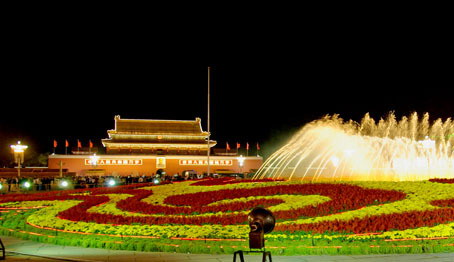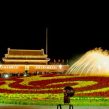
The Unrepentant China Model
Publication: China Brief Volume: 12 Issue: 23
By:

Reform has dominated discussions of China this year as the country approached a major leadership transition. At the National People’s Congress in March, optimism blinded many analysts from recognizing the Chinese leaders’ calls for reform as limited to maintaining the political status quo (“The Limits of Reform: Assaulting the Castle of the Status Quo,” China Brief, April 26). That Vice President Xi Jinping emerged from the 18th Party Congress with stronger support on the Politburo Standing Committee than expected and so-called reformers like Wang Yang were sidelined suggests a strongly conservative course. An honest appraisal, however, would concede that any leadership lineup that included members of the Chinese Communist Party (CCP) was going to be conservative. Yet few probably were prepared for such a strong defense of the greatness of the status quo and the dangers of any alternatives.
The opening salvo was launched in the flagship People’s Daily by the official penname “Zhongsheng” (“Voice of China”) even before the Party Congress concluded: “hold high the great banner of socialism with Chinese characteristics, unswervingly follow the path of socialism with Chinese characteristics, we have enough confidence and strength.” In keeping with its usual focus on international affairs, Zhongsheng noted “blindly copying the Western political system” has left countries destitute and unstable whereas the CCP has led China to a great rejuvenation (People’s Daily, November 11). The CCP, in fact, was the most important element of the brilliant successes of the “China Model” (Red Flag, November 11).
According to party journal Red Flag, the “China Model” has three major premises. The first is the CCP’s leading role in governing China. The CCP’s more than 80 million members make up the “largest and most united” political vanguard in history with a democratic orientation (People’s Daily, November 13). The second is the dominance of the state-owned sector of the economy. This is a tacit acknowledgement that the state-owned sector has been developing at the expense of the private sector—a phenomenon known as “guojin mintui” that was once denied by the party (Sina.com, March 14, 2011). The third is the guiding role of the state for the rest of the national economy (Red Flag, November 11). This should not be misconstrued as inflexibility in the practical measures for retaining the model. Several publications referred to the need to “neither follow the rigid, closed old road, nor the evil path of changing the flag,” a reference to the Maoist line and structural political reform, respectively (Red Flag, November 23; China Economic Weekly, November 20; People’s Daily, November 11).
To carry the point about the evils of Western multiparty democracy and changing the flag, Chinese media drew attention to the roughly $6 billion spent in the last U.S. election cycle, allegedly illustrating the hypocrisy of “one person, one vote.” According to a scholar from the China Academy of Social Sciences, this financial corruption is the result of the U.S. socio-political system and proves regulators cannot serve as an adequate barrier to the ills of capitalism (Qiushi, November 7). China, as newly-anointed CCP General Secretary Xi Jinping said, must adhere to the Constitution of the People’s Republic of China that places the party in charge of the country and the responsibility of guiding it toward one-party democracy (Xinhua, November 19). Any reform of this basic system—apart from being unconstitutional—potentially endangers the future of the CCP and, hence, the well-being of China (People’s Daily, November 11).
This celebratory CCP conservatism is once more a sign that the Chinese leadership may fight over policy differences, but there is a fairly clear consensus at the top about the nature of the political-economic system. Reform, once again, remains restricted to regulating corruption within the party and improving its performance in governing. Such reforms, however forcefully expressed by senior leaders ranging from Wen Jiabao and Li Keqiang to Xi Jinping, are not a shock to the system, but rather a natural part of the evolving system of socialism with Chinese characteristics. The question of political change in China is not one of reform, but whether the CCP’s administrative improvements to reorient governance actually address China’s problems and, if not, what then?





